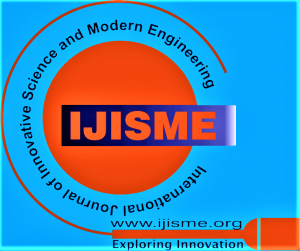Role of Artificial Intelligence in Enhancing Healthcare Delivery
Priya Jeyaraj1, TSA Narayanan2
1Brigadier Dr. Priya Jeyaraj, Classified Specialist (Oral & Maxillofacial Surgery), Deputy Commandant Officer Command Military Dental Centre (Eastern Command), Kolkata, Indian Army, India.
2Lt Gen TSA Narayanan AVSM (Retd), Ex Commandant, Military College of Electronics & Mechanical Engineering, Secunderabad.
Manuscript received on 03 December 2023 | Revised Manuscript received on 11 December 2023 | Manuscript Accepted on 15 December 2023 | Manuscript published on 30 December 2023 | PP: 1-13 | Volume-11 Issue-12, December 2023 | Retrieval Number: 100.1/ijisme.A131012010124 | DOI: 10.35940/ijisme.A1310.12111223
Open Access | Editorial and Publishing Policies | Cite | Zenodo | Indexing and Abstracting
©The Authors. Published By: Blue Eyes Intelligence Engineering and Sciences Publication (BEIESP). This is an open access article under the CC-BY-NC-ND license (http://creativecommons.org/licenses/by-nc-nd/4.0/)
Abstract: The integration of Artificial Intelligence (AI) into the healthcare industry has ushered in a new era of innovation and transformation. Artificial Intelligence (AI) is rapidly shaping the future of healthcare. Its integration into various healthcare domains, from medical imaging and diagnostics to drug discovery, virtual health assistants, and remote patient monitoring, has demonstrated transformative potential in improving patient care and healthcare delivery. AI-powered medical imaging algorithms have revolutionized diagnostics, aiding in early disease detection and treatment planning. Drug discovery and development have benefited from AI-driven predictive models, leading to faster identification of drug candidates and personalized treatments. Virtual health assistants and chatbots have enhanced patient engagement and access to healthcare services, while remote patient monitoring has enabled continuous health tracking and proactive disease management, reducing hospitalizations and improving patient outcomes. Moreover, AI’s predictive analytics and risk stratification have paved the way for personalized preventive strategies and population health management, contributing to better healthcare outcomes and disease prevention. This paper aims to explore the current state of AI adoption in healthcare and investigate the various AI-driven applications that are transforming the industry. By analysing case studies and success stories, it seeks to highlight the concrete impact of AI on patient care and healthcare systems, and examine how it can improve patient care delivery and enhance medical logistics. Furthermore, this research will delve into the challenges and ethical dilemmas surrounding AI in healthcare and provide insights into potential solutions to overcome these obstacles.
Keywords: Artificial Intelligence; Healthcare; AI in Patient Care Delivery, AI in Medical Logistics Delivery.
Scope of the Article: Artificial Intelligence
